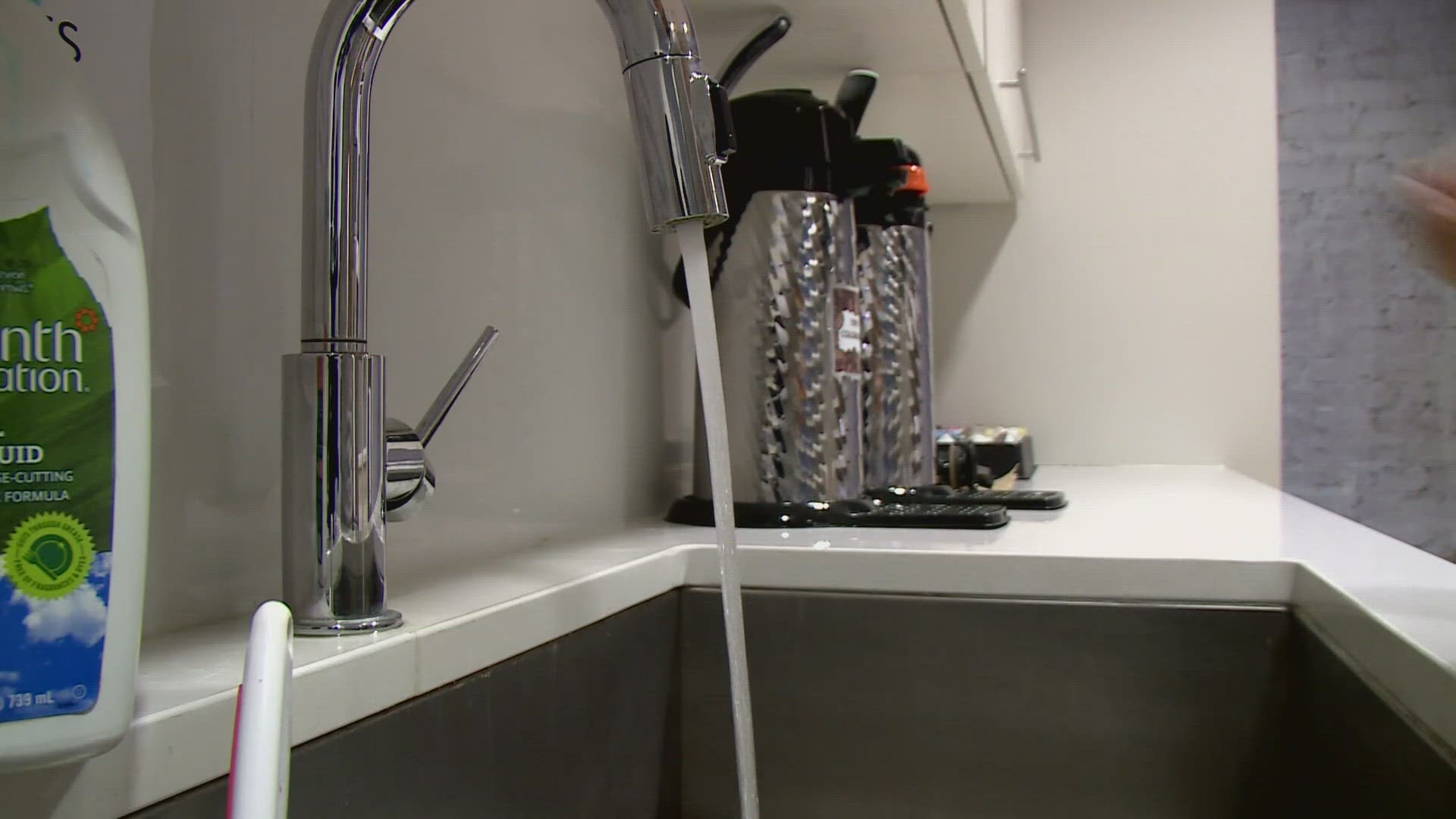NEW ORLEANS — A precautionary boil water advisory was issued for parts of New Orleans East Wednesday night after a water main break in the area, Sewerage and Water Board of New Orleans reported.
The advisory was issued after a water main break near Haney Dr. and Hayne Blvd. caused water pressures to fall below 20 pounds per square inch (psi).
SWBNO crews are working on repairing the break. "Water pressure is now restored, water quality samplers will begin collecting samples for testing. Results may take up to 24 hours to achieve," a release said.
Residents impacted include:
- Morrison Rd. from Poitevent Ave. to Paris Rd.
- Paris Rd. from Morrison Rd. to Hayne Blvd.
- Hayne Blvd. from Paris Rd. to 9600 Hayne Blvd.
- Poitevent Ave. from Irby St. to Morrison Rd.
What to do during a boil water advisory
Advisories don’t necessarily mean that the water is contaminated but that viruses or bacteria could have gotten into the system, and the current water quality is unknown.
During a boil advisory, you should use bottled water or water you’ve boiled for one minute on the stove.
This goes for washing dishes, cooking, drinking, brushing your teeth, mixing baby formula, or filling your pet’s water bowl.
The CDC says you should boil your tap water even if you have a water filter because most kitchen filters don’t kill bacteria or viruses. Only a UV water disinfection system can kill them.
Don’t use any ice made with tap water during the boil advisory, and be sure to empty your ice maker after the order is lifted.
Baths and showers are okay, just try not to get water in your mouth. You should sponge-bathe babies and small kids to keep them from swallowing water. Laundry and using the dishwasher is okay, too, as long as you have good enough water pressure and the parish isn’t specifically requesting residents to conserve water.
During this precautionary advisory, healthy adults should take the following precautions:
- Washing hands: Use soap and tap water, dry hands, then apply hand sanitizer; the safest option is to wash with bottled or boiled water.
- Showering or bathing: Be careful not to swallow any water. Infants, young children, and disabled persons should be supervised to ensure water is not ingested. Residents with open wounds, chronic illness or weakened immune systems should use boiled or bottled water to bathe until the advisory is lifted.
What to do after an advisory
- Run all cold water faucets for at least 5 minutes.
- Flush ice makers by making and getting rid of 3 batches of ice.
- Drain and refill hot water heaters if the heater was set below 113° F.
► Get breaking news from your neighborhood delivered directly to you by downloading the new FREE WWL-TV News app now in the IOS App Store or Google Play.

